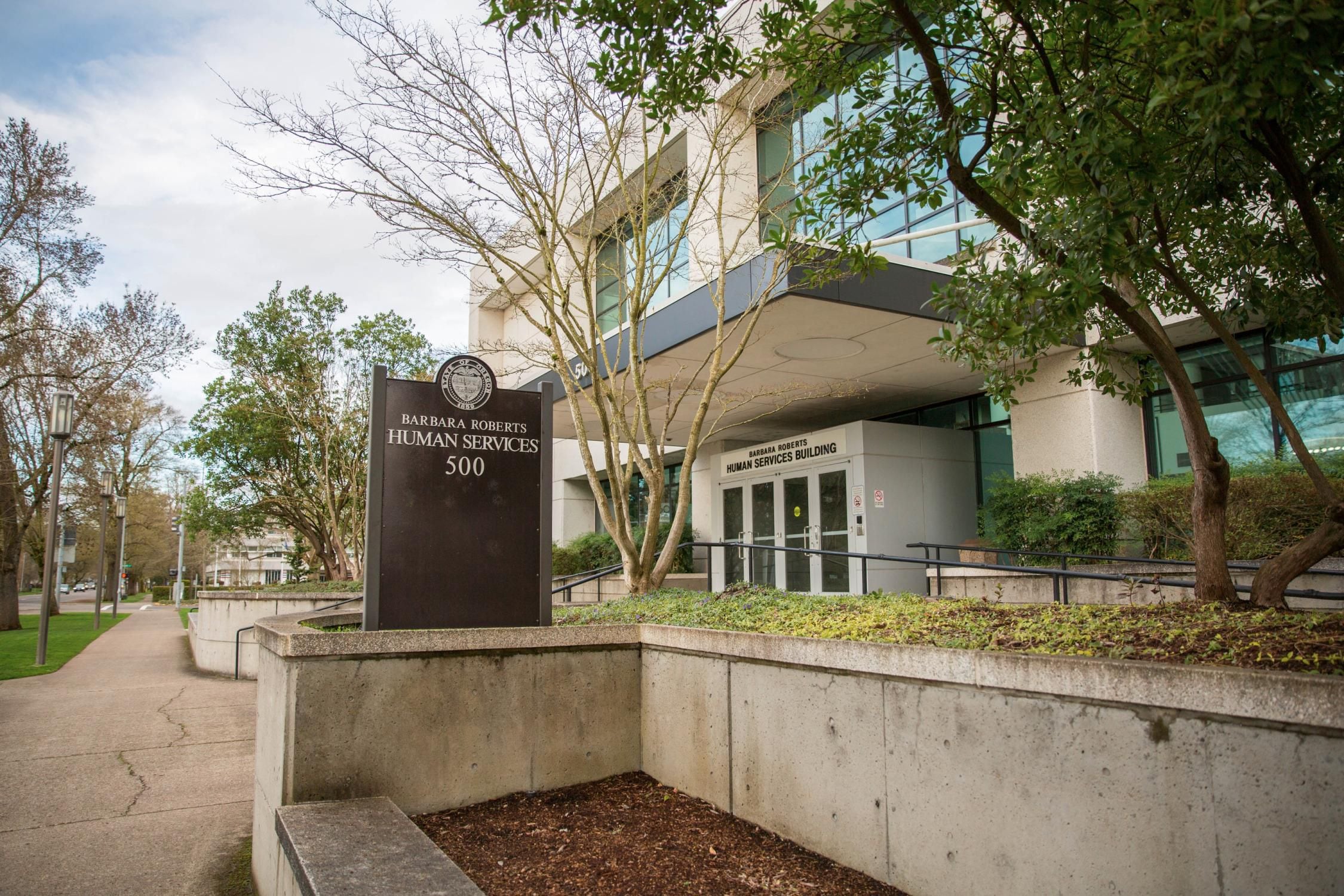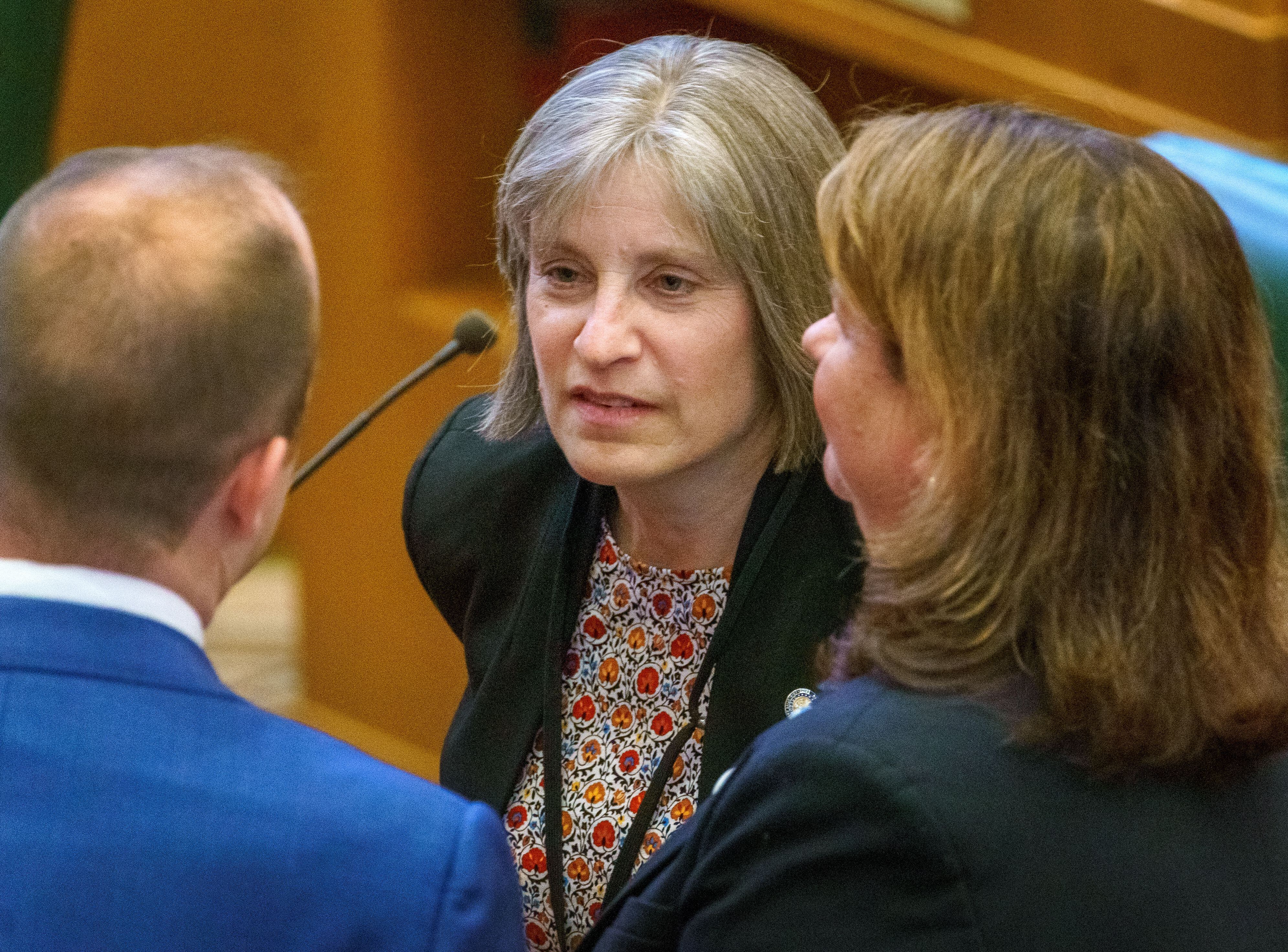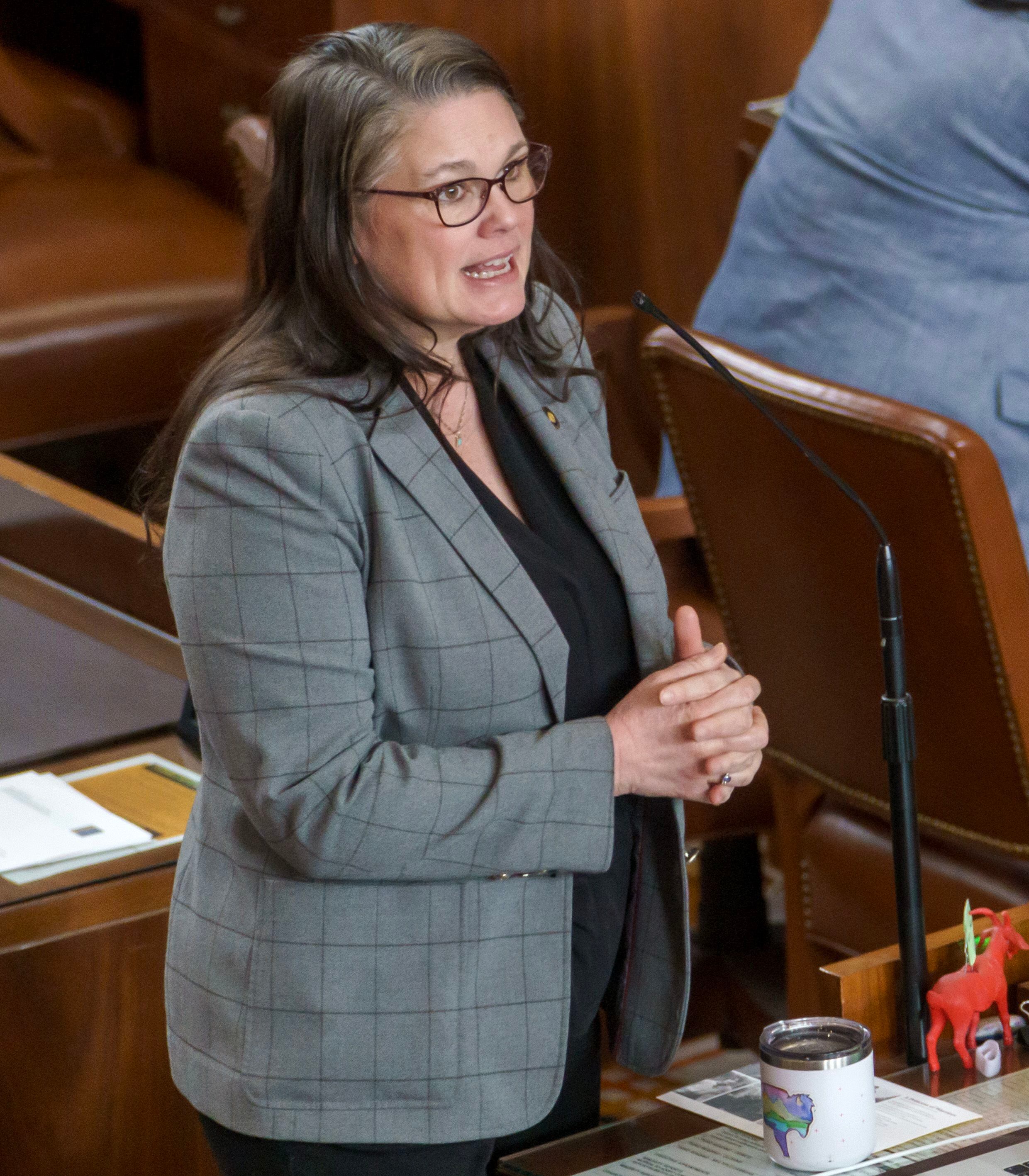

Published on: 04/20/2024
This news was posted by Oregon Today News
Description
Note: This story contains details of sexual assault. If you or someone you know may be a victim of sexual assault, confidential support, information and advice are available at the National Sexual Assault Hotline by calling 1-800-656-4673. Text chat is also available online. Make a report to Oregon’s Child Abuse Hotline at 1-855-503-SAFE (7233).
A recent lawsuit filed in Multnomah County highlights questions about how the state of Oregon addresses child abuse, especially when the abuse is done by fellow children.
The lawsuit in question — filed last month against Portland Public Schools, the nonprofit Latino Network and Multnomah County — details allegations from about two years ago. According to the complaint, a female student, 9 at the time, was sexually harassed or assaulted by peers more than once during school hours and raped by two other children during an afterschool program.
The survivor’s family is suing for $9 million, arguing, in part, that the school and afterschool program were negligent during the incidents and failed to immediately notify law enforcement.
The family enrolled the girl and her brother elsewhere in the district when they felt the school’s response didn’t adequately protect their children’s safety.
School and county officials aren’t commenting much on the lawsuit, and many questions are still unanswered.
The complaint comes to light as state agencies and lawmakers are already grappling with Oregon’s processes and comparing them to national best practices.
They’re asking many questions. Who should be investigated for child abuse? Who should do the investigating? And how should the state respond when the perpetrators are also children — below the pre-teen age of criminal culpability and likely in need of support themselves?
House Bill 4086 changes shape
In the recent short session this spring, one bill acknowledged some of the confusing and conflicting policies governing child abuse investigation and sought to reimagine how reports and resources are handled by the state.
At first, House Bill 4086 set out to change when the Oregon Department of Human Services is required to investigate child abuse. Most notably, the new definitions would have removed the requirement to investigate abuse by minors and abuse by some “third parties.”

“Third parties” often refer to adults other than parents and caregivers, including people involved in incidents that occur at schools and other state-authorized facilities. But DHS officials said, in this case, the bill was focused on strangers and sexual exploitation cases that happen exclusively online. A Department of Justice unit already leads investigations of online crimes against children.
Senate Bill 155, passed in 2019, solidified the current requirement of DHS to investigate third-party reports, as well as any report that law enforcement declined to investigate.
Last year, DHS’ Office of Training, Investigations, and Safety conducted investigations of 1,652 individuals and found substantiated allegations for 581 of them — about a third — according to the office’s interactive data tracking tool. Sexual abuse made up half the allegations.
Most of these investigations, according to state documents, involved “third-party, non-familial” individuals rather than professional caregivers.
The data does not show the age of the assailants. In fact, DHS officials said there isn’t data available to fully understand the scope of this issue. There’s some data on allegations against older teens.
But state leaders know about these problems — they’re just not sure how to fix them yet.
“One of the things we know in Oregon is that our children’s serving system is siloed and complex,” Anna Williams, executive director of Oregon’s System of Care Advisory Council, testified to lawmakers in February.
“[M]andatory reporters struggle to know if they should be reporting things because… we have four or five different definitions [of child abuse] depending on where the type of child abuse takes place.”
Still, the initial House proposal to clarify the state’s approach was met with criticism.
Rep. Lisa Reynolds, D-Northeast Washington County, is a pediatrician and the chair of the House Committee on Early Childhood and Human Services. She said it became clear to her and several others during the short session that the bill needed more vetting.
For example, she explained that while DHS staff had spoken with one district attorney, other DAs felt they should have been more included in the process. As she put it in one hearing, the bill just wasn’t “quite ready for prime time.”
Advocates of the bill agreed during the session.
“In our ongoing outreach and collaboration efforts with multidisciplinary partners, it became clear there was a need for a more common understanding to get to a place where everybody has clarity,” Lisa Bender, assistant deputy director for child welfare at DHS, told lawmakers, “not only about the role of child welfare, but also how our role may intersect with our partners in law enforcement, health care settings, schools, etc.”
Lawmakers changed the bill in response. What’s often known as a “gut and stuff” amendment took out the original language and changed it to what’s seen now. Rather than changing policy, legislators opted for more processes.
“In retrospect, for such a big topic with huge implications, we should have had a more robust workgroup from the get-go,” Reynolds told OPB via email. “So, HB 4086 does just that.”

The bill, as passed, now commissions two studies — one on the scope of child abuse investigations in the state, and another on Oregon’s response to children exhibiting problematic sexual behavior.
A minimum requirement for the second study is to identify the current state of services and resources available to children exhibiting problematic behaviors and clarify which supports are available specifically to children under 12.
The committee membership, according to the bill, must include individuals with lived experience with child abuse and professionals or representatives of organizations involved with children, such as school employees, community developmental disabilities program staff, and attorneys representing children.
Reynolds said the issue at hand is what constitutes “child abuse” and “child endangerment.”
“Oregon is the only state in the U.S. that does not have a definition for who is investigated for child abuse,” she said. “We anticipate clarity on these definitions from the workgroup. And then, if the state of Oregon adopts a new definition, ODHS would investigate all instances of child abuse/endangerment.”
Williams with the Advisory Council said Oregon’s response to problematic sexual behaviors — actions that aren’t developmentally appropriate based on age — has been a conversation the state has needed to have for years. She said it’s been “pretty challenging to get that conversation to the table.”
This isn’t just an Oregon issue. According to the National Children’s Alliance, the process of identifying, preventing and responding to child abuse and problematic sexual behaviors among youth is often fragmented and inconsistent across the country.
Data from 2015 show that in 20-25% of cases handled at Children’s Advocacy Centers, youth or children under age 18 acted out against another child. And though the data is much older and limited, some research shared by the Alliance shows nearly a quarter of sexual assaults on young children are committed by juveniles.
Yet, when treatment measures are put into place and executed correctly, data shows substantial potential for these kids in the future. Youth ages 13-18 had a 97% long-term success rate of not repeating sexual offenses, according to the data shared by the Alliance. Children ages 7-12 had a 98% success rate.
Senator’s concerns linger
A handful of individuals from different pockets of Oregon voiced their opposition to House Bill 4086 this spring, as seen in written testimony. But Sen. Sara Gelser Blouin’s opposition was particularly noteworthy.
The Democrat from Corvallis is a vocal advocate for issues concerning child welfare and a regular watchdog of Oregon’s Department of Human Services. She was also the chief sponsor of a Senate bill considered in 2023, that would have prohibited the department from determining an individual is unfit to volunteer or work solely based on allegations of abuse from when they were minors.
Though House Bill 4086 this year passed with vast support in both the House and Senate, Gelser Blouin was one of five Senators who voted against it.
Gelser Blouin told OPB she has wholeheartedly supported the portion on problematic sexual behaviors from the start. But she doesn’t want to let DHS avoid investigating minors and third-party abusers.
“I was adamantly opposed to and remain adamantly opposed to section one of that bill because I think that it has a predetermined outcome,” Gelser Blouin said. “ODHS, for years, has had thousands of overdue assessments that they are not completing on time. And we have consistently added workforce to do that.
“And those [who are] doing the work are working really hard. I don’t want to take away from that at all,” she added. “But the answer to resolving workforce issues is not to stop investigating child abuse.”

Gelser Blouin said the recent lawsuit in Portland relates to both parts of the bill. She believes that if the state did lower the number of investigations the human services department is responsible for, it would have a negative impact on cases like Portland.
Under Oregon law now, Gelser Blouin explained, certain steps should have been taken after an incident like the ones described in the lawsuit, regardless of whether it happened during school hours or at an afterschool program.
Whoever becomes aware of an abuse should immediately call the state’s child abuse hotline or law enforcement. That should then be cross-reported to DHS. At that point, the responsibility of law enforcement is to investigate any criminal elements, and DHS is responsible for investigating any abuse.
This is key, Gelser Blouin argues, because child abuse findings can influence things like background checks at daycare centers and schools, independent of criminal findings.
If an individual doesn’t make it all the way through to a prosecution and conviction — if they plea out, for example — abuse found elsewhere isn’t necessarily going to show up on a criminal background check or keep that individual away from other children in the future, she said.
It’s much more challenging to go through a criminal process, Gelser Blouin added. And for children as young as the alleged aggressors in the Portland case, a criminal result is unlikely to happen.
So, the results of an abuse investigation by DHS are that much more important for an individual to heal and for all kids involved to get help.
“It is really hard to accept that things like what’s alleged in [the Portland] case can occur. But they do,” Gelser Blouin said. “And I think a lot of people ask, you know, ‘Why do bad things keep happening to kids? Why do bad things keep happening to kids in foster care or in residential programs?’ It’s because what we hear is so awful, we don’t want it to be true, and we don’t believe it.
“And when we don’t respond and affirm the kids by saying, ‘Yeah, that shouldn’t have happened to you,’ they start to learn that that’s OK.”
Gelser Blouin also has lingering concerns about DHS supervising the studies outlined in House Bill 4086 and presenting the committees’ recommendations to the Legislature in 2025. She argues it’s clear the agency has a goal to reduce the number of investigations they do.
Rep. Reynolds doesn’t agree. She said DHS will be contracting the work out to what will be a “well-respected consultant with expertise in this field.”
“I’ve said from the beginning that sunlight is the best disinfectant,” Reynolds wrote. “I anticipate that recommendations from this group will be meaningful, vetted, evidence-based, etc.
“And then, the legislature can decide what to take up and run bill concepts through the very rigorous process of hearings and votes,” she added. “I am proud of the process this bill puts in place, and I don’t share the Senator’s concerns.
“There are just too many smart people who are working on this, and a full legislature (and a governor), that will analyze any recommendations.”
It’s not uncommon for Oregon legislative bills to go from specific to broad, resulting in task forces or studies. The question now is how effective these will be.
Jake Sunderland, the press secretary for DHS, said the call for applications to join the two committees went out this week. The members will meet through the summer and fall, preparing preliminary recommendations for September legislative hearings and the 2025 session.
A final report will be submitted to the Legislature in September 2025.
Reynolds isn’t sure yet if any bill concepts will be crafted from the preliminary report, but she’ll be watching closely.
“[W]e must make sure every baby, child, youth are safe in their homes, schools, and communities,” she said. “And, of course, I would never stand by any bill concept that reduces child safety and security.”
April is National Child Abuse Prevention Month. Learn more here.
News Source : https://www.opb.org/article/2024/04/20/lawsuit-involving-portland-students-highlights-oregon-questions-around-child-sex-abuse/
Other Related News
05/03/2024
When a wild orangutan in Indonesia suffered a painful wound to his cheek he did something ...
05/03/2024
As the Biden administration moves to reclassify marijuana as a less dangerous drug scienti...
05/03/2024
The Portland Police Bureau said its officers arrested 30 people Thursday in connection to ...
05/03/2024
EUGENE Oregon has bolstered its interior defensive line
05/03/2024











